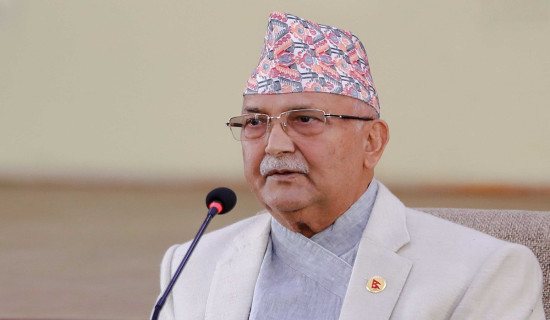- Monday, 5 January 2026
Decolonising Global Health System
We live in a world of diverse socio-cultural, economic, environmental and political contexts. In an increasingly globalised world, we still continue to experience growing global inequity, burden of poverty, food insecurity and millions of preventable deaths every year. Undoubtedly, the gradients of global health inequality are patterned by large scale social forces perpetuating poverty, inequality, food and water insecurity, climate change, limited access to education, unsafe housing, and high unemployment.
Global health primarily aims at achieving health for all. Evidence suggests that increased family income is associated with better access to nutrition, education, and health care. Many developing countries are still struggling to provide basic social protections to all, especially the poorest and most vulnerable. Therefore, global health is a noble ambition that requires multi-sector response to enhance health equity and social justice for a healthier world.
Gradual progress
However, the global health system is still unable to address the structural violence, among many others. Historically, there is gradual progress in addressing global health problems such as HIV/AIDS, tuberculosis, malaria and other neglected tropical diseases. More importantly, the 1978 Alma-Ata Declaration enshrined a bold vision of health for all by the year 2000. Likewise, after the success of smallpox eradication in 1979, global health community hoped that effective health services would address the unmet needs of unreached and socially marginalised populations.
Global health has roots in the colonial period that are reflected in many inequities across generations. According to United Nations University, International Institute of Global Health (UNU-IIGH), decolonisation is largely a process that positively shifts power, and encourages forms of global health practices that are better tailored to the needs and contexts of low-income countries and marginalised populations everywhere. From the perspectives of Global South, the decolonised global health offers ample opportunities to harness the vision of equitable, inclusive and sustainable health for all.
Additionally, the colonialism and coloniality often produce unequal relationships and culturally-inappropriate health policies and strategies. Shifting from problematising coloniality to catalysing decoloniality, the recent debates primarily concentrate on power asymmetries, knowledge and structural hierarchies that sustain colonial ideas and relationships in global health. There is an emerging need to develop a broader and more structural understanding of polices, strategies and actions that help decolonise global health by shifting the balance of decision-making power, redistributing resources, and making agencies accountable to people and places across the global health ecosystem.
Again, coloniality largely refers to the ideas, beliefs and narratives that help legitimise and sustain the colonialism. During the launching of decolonising global health programme in September 2022, David McCoy, Research Lead at UNU-IIGH pointed out closer association of colonialism with racism, gender discrimination, neoliberalism and ecological crisis that our planet is facing for ages.
Moreover, there are essentially three intersecting dimensions to contextualise the agenda of decolonising global health. These dimensions include decolonisation within global health, decolonisation of global health, and decolonisation through global health at large. The focus is largely on the power asymmetries and unequal relationships, dominance and control of global health governance, influence over policies and financing. In addition, global health system is experienced as a means of exploitation and extraction to some extent.
The Global South needs more voices to ensure the indigenous knowledge and health practices of culturally diverse communities are well represented and effectively mainstreamed in global health system. Moreover, local culture has crucial role in how different people experience health and illness, and how they access and experience health care. The dramatic health disparities have significant impacts on marginalised populations such as migrants, internally displaced families, refugees, indigenous and minority ethnic populations.
During the COVID-19 pandemic, developing countries faced mounting challenges of timely accessing the vaccines for all. On the other side, in global health agenda, it is vital to consider how the health risks are structurally influenced and shaped by socio-political contexts, laws, policies, norms, politics of international aid, and overarching issues ranging from trade agreements, immigration policies, procurement of essential medicines and medical equipment.
The geo-political determinants of health disparities are equally important. The global health institutions, researchers and the priorities are predominantly in developed countries. Unsurprisingly, most of the research projects or interventions take place in developing countries. Thus, the colonial global health structure perpetuates dependence, neocolonialism and the wider gap between rich and poor. Therefore, decolonising global health demands a systematic review of socio-economic, cultural and political contexts that have profound effects on health determinants at large.
Geo-political contexts
Moving forward, it is necessary to create partnerships in order to put decoloniality in practice. In so doing, we need evidence based on the health impacts of colonialism and coloniality in different socio-cultural, economic and geo-political contexts. In addition, promoting participatory and inclusive networking across key stakeholders such as political leaders, policy makers, civil society activists, academics and researchers can promote inclusive policy actions that are coherent with the principle of social justice.
In essence, the inherent power structures and asymmetries rooted in centuries of colonialism are complex and hence constrain progress in global health. Decolonising global health demands the knowledge and perspectives from the Global South are meaningfully represented and valued in policy making and strategic actions. Moreover, they can raise policy agenda and influence global health practice in equal footing with those from the Global North. The persistent social, cultural, economic, geopolitical and health inequalities caused by colonialism must be challenged to advance medical pluralism and health equity across the globe.
(Bhandari is a health policy analyst.)
















